You may have basic details on what coarse hair entails, but that isn’t enough. So, what is coarse hair? Coarse hair has strands with a larger diameter and a coarse texture. If you aren’t sure whether your hair is coarse or not, read on to identify your hair type, its characteristics, and how to care for it.
What Is Coarse Hair?
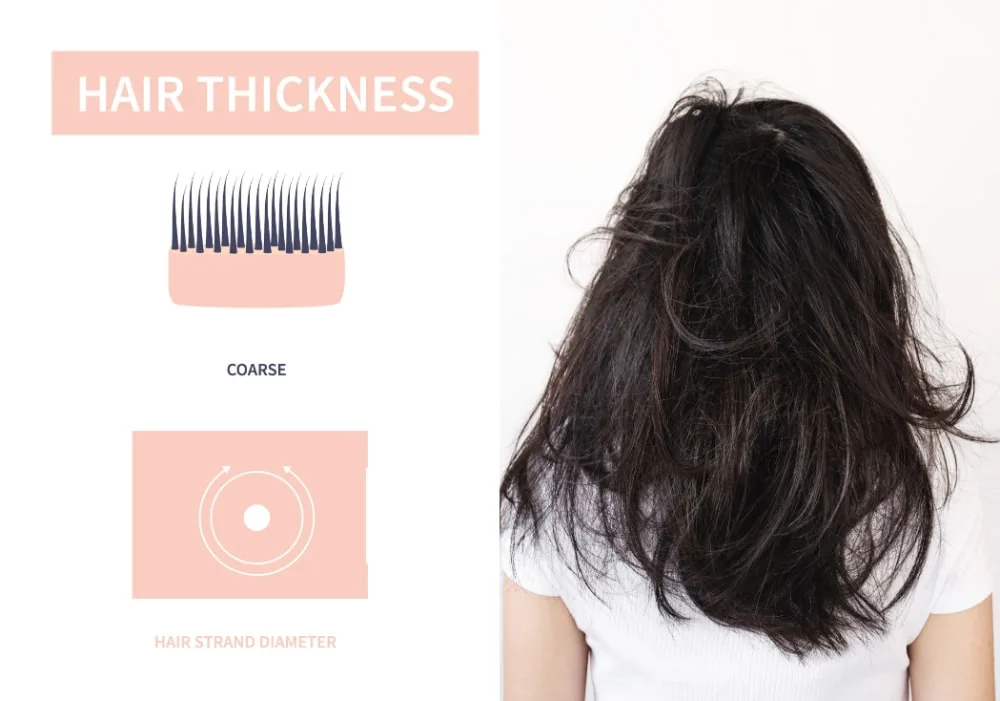
Coarse hair strands have a thick diameter and are more difficult to break than other hair types. It is strong and has a coarse texture, as the name suggests.
Most people confuse thick with coarse hair. Coarse hair has thick strands, while thick hair has many hair follicles on your scalp, making it denser.
Hair stylists don’t prefer working with this hair type because it’s difficult to manipulate due to its strength and brittleness. In addition, it loses moisture quickly because of the thick shaft, which makes it lose oils and moisture quickly before getting to the hair follicles.
This hair type has equal parts of the three hair layers (medulla, cortex, and cuticle) in the shaft, making it thick enough to roll between your fingers. It can be wavy, curly, or straight; the width of the hair strands determines their texture.
Proper care and maintenance bring the right curl or style to fruition. Understanding your hair needs helps you breed healthy, glossy hair to match your sense of style and class.
Why Does Hair Become Coarse?
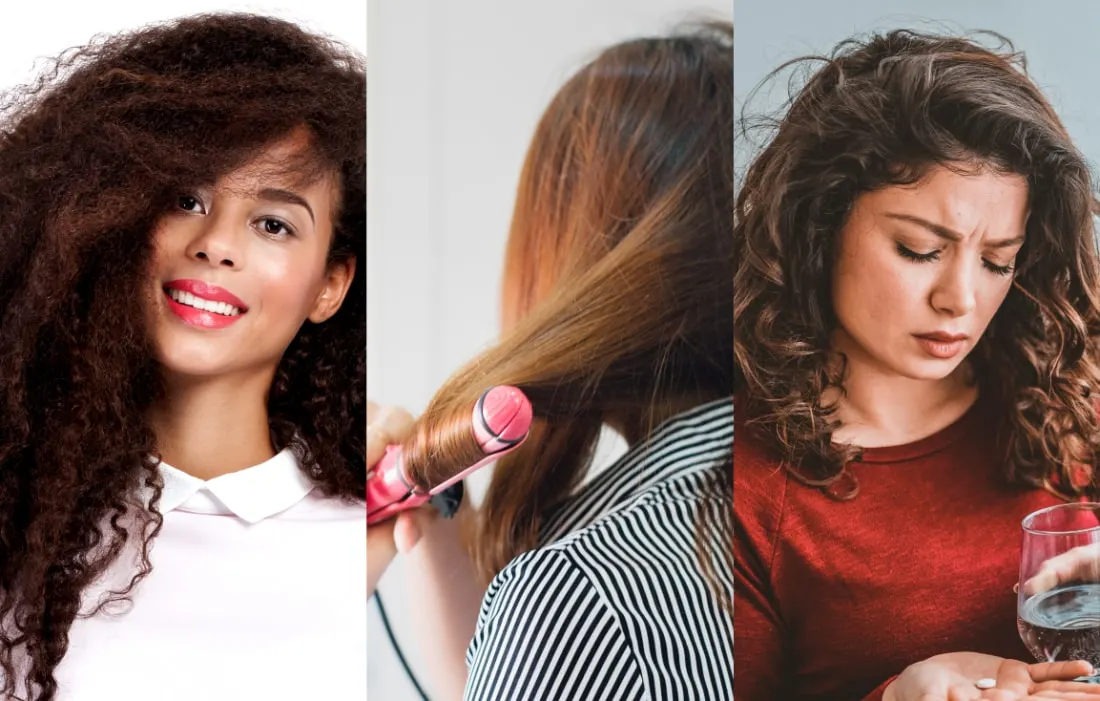
You get your hair type through hair links in genetics. If your family tree has a history of having this hair type, there is a high chance you’ll have coarse hair. The natural hair texture of some ethnic groups is coarse, meaning most have thicker hair strands.
It’s possible to get coarse hair even if you don’t have it through genetics. Some conditions or lifestyle decisions affect your hair texture over time. Look out for the reasons.
Medication
Certain steroids and hair growth medications change your hair texture to coarse. Take a keen interest in the type of medication and how long you use it to avoid these hair texture changes.
Certain conditions like iron or calcium deficiency also dry your hair and change its texture. You end up having dry and frizzled hair that’s difficult to style. Insufficient iron and calcium reduce hair strength and health, causing it to dry, fall off, and have a coarse texture.
Hormonal Imbalance
Thyroid hormones directly influence your hair’s health. Hypothyroidism, a hormonal imbalance condition, is another common cause of curly and coarse hair. Inadequate hormones affect the hair follicle structure and moisture, causing it to have this texture. Managing your medical and cosmetic needs helps you care for your hair better.
Other hormonal changes, like in pregnancy, can also cause coarse hair.
Hair Treatments and Styling
Regular heat and chemical treatments and styling change your hair texture. Blow Drying or flat ironing your hair more frequently causes your hair to dry out and change its texture. The type of chemicals in your hair products can also strip your hair of oils and moisture, making it dry and causing the hair to be coarse.
How To Identify Whether Your Hair is Coarse or Not
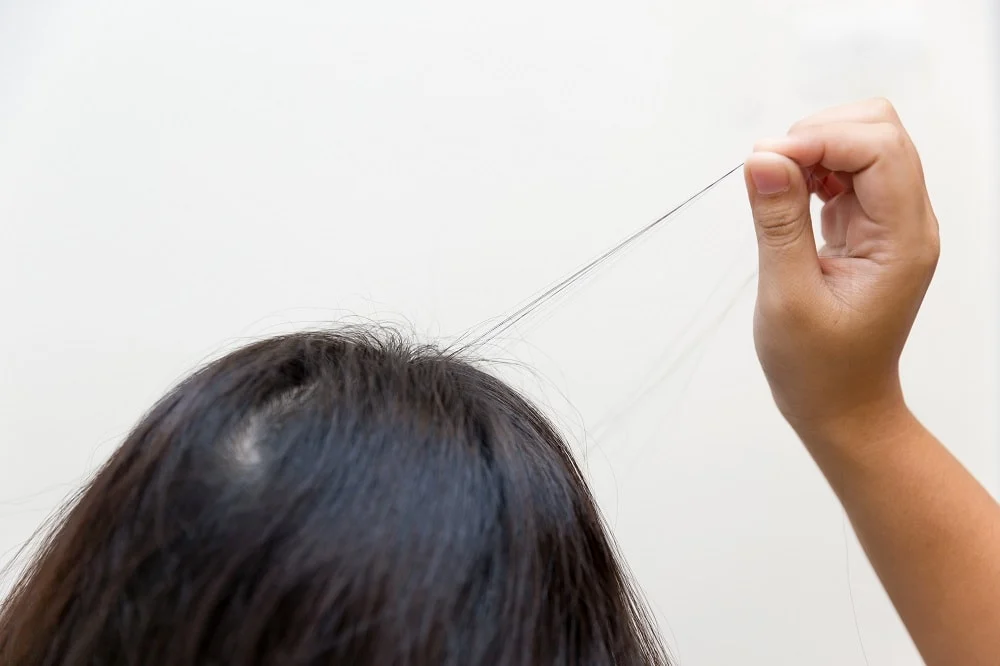
To identify if your hair is coarse or not, you’ve to know the hair’s characteristics. The distinguishing factors are the diameter and elasticity. Unfortunately, your hair density can’t help you identify your hair texture explicitly.
Diameter
Coarse hair has a larger than average circumference. Isolate some hair strands and analyze their thickness. Coarse hair’s thickness slightly exceeds the thickness of a sewing thread, and you can feel its presence between your fingers when rolling it.
Elasticity
Coarse hair has high elasticity. Therefore, when you pull out a hair strand and elongate it, it should strengthen to its maximum and return to its initial length after release.
Coarse Hair Problems
Taking care of coarse hair can be quite a task. This type of hair doesn’t hold moisture for long, but it gets long along the thick hair shafts in the strands. Maintaining the moisture to give a shiny look needs the right products and techniques.
Coarse hair also has brittle hair that has rough ends. Working around these characteristics to realize a particular style, curly or wavy, can be tricky.
Holding a style for a long time also proves to be challenging. You have to be proactive and monitor your hair requirements for proper maintenance.
How To Take Care Of Coarse Hair
The first step in handling coarse hair is identifying and learning about it. Next, you’ll understand which products or steps to take to maintain the luster or style in your hair. Finally, check out these simple steps to take care of your hair.
Choose Your Shampooing and Conditioning Products Carefully

Use shampooing products that don’t have drying ingredients like sulfates but moisturizing and nourishing ingredients like antioxidants and fatty acids. These products aim to boost and protect your hair’s moisture instead of causing the already dry and coarse hair to dry further.
Use conditioning products with moisturizing agents like creams, oils, or serums. These products lock in moisture to avoid further moisture loss in your hair. As a result, they control the hair frizz while providing more oils and moisture to the hair to balance out any oil losses due to coarse hair.
Use the Right Styling and Treatment Techniques
Deep conditioning hair masks and hot oil treatments work well with coarse hair. They nourish your hair giving it a suitable gloss and shine due to the moisture and oils. You can use DIY deep conditioning masks that contain natural oils and ingredients like coconut and avocado. It keeps your hair healthy, reduces frizz, and nourishes your hair.
Ensure you oil your hair frequently to supplement your oil-depleted hair with the necessary oils. It allows your scalp and hair to have adequate oil and moisture to hold in style and keep it shining and glossy.
Choosing the right hairstyle with coarse hair helps you maintain your health. Limit your heat styling methods if you have coarse hair. Instead, focus on conditioning your hair with the right products and styling it using the right comb.
Research protective hairstyles that involve less heat and don’t tangle your hair. It’ll help you protect and maintain your hair.
If you have to use heat styling methods, use a thermal protectant, let the blow dry be 6 inches away from your hair, and take the shortest time exposing your hair to heat.
Also, let your hair be damp and not wet to limit the time to dry and style your hair. These tips will prevent heat damage to your coarse hair and try to protect its moisture and oils.
Adopt New Techniques Like Co-Washing While Avoiding Alcohol-Based Products
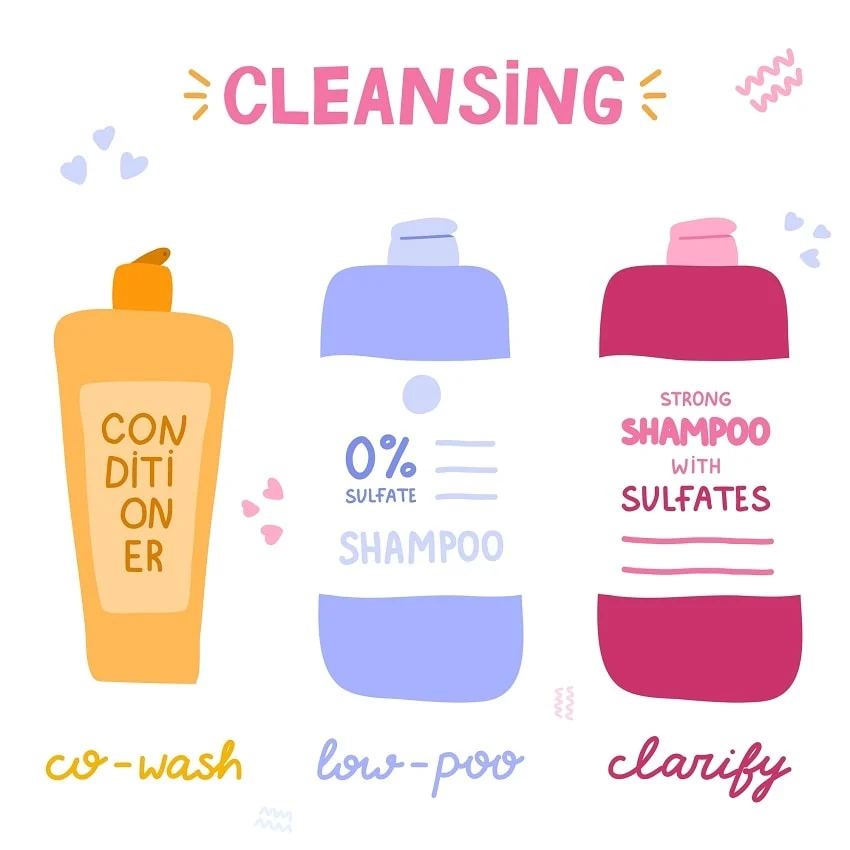
In co-washing, you use your conditioner to rinse off the dirt in your hair instead of shampoo. It allows you to lock in more moisture using moisturizing agents in the conditioner. Alcohol-based products tend to dry your hair. In addition, using it on coarse hair makes it difficult to comb and style your hair.
Instead, embrace suitable alcohols like cetyl and stearyl alcohol that are primarily vegetable based and have good conditioning properties.
Use the Right Tools and Equipment
Use the right brush when detangling and styling your coarse hair. Choose a brush with spaces between the bristles, as they will be gentle on your rough hair. Ensure you follow the proper steps and techniques when washing, conditioning, and styling your hair.
Trim When Necessary
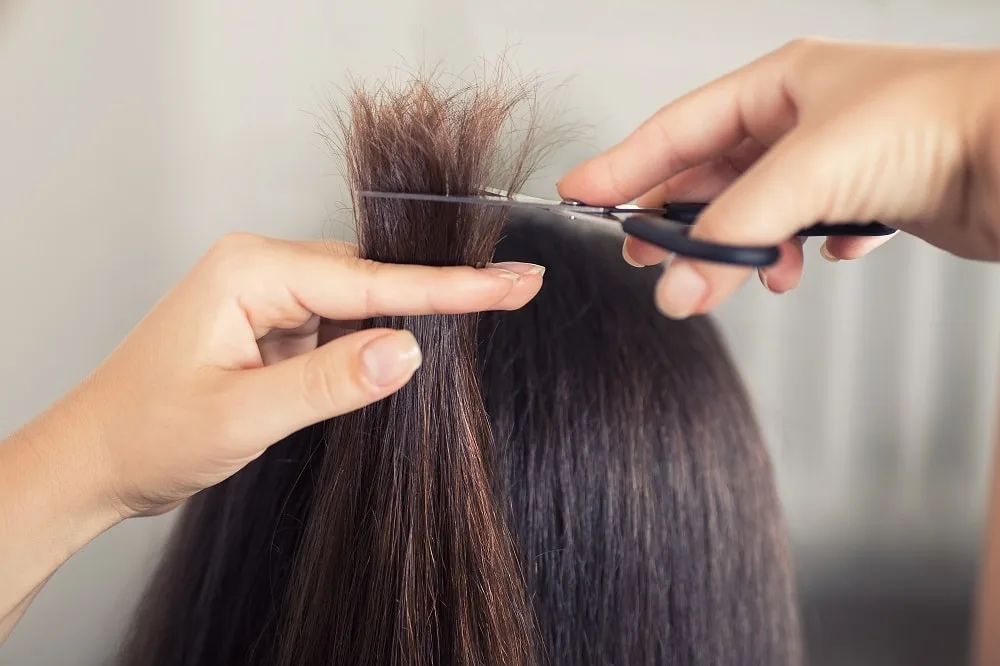
Trimming your hair every eight weeks helps in hair management. Coarse hair tends to have split ends that dry up, making it more challenging to manage. Regular trimming curbs this problem and helps maintain good hair health.
Don’t Go for Complicated Styling
Styling hair can be challenging with coarseness. Consult your stylist to choose a hairstyle that won’t compromise your hair’s health and protects it from damage.
Hairstyles that are prone to detangling will damage your dry hair more. Invest in protective hairstyles.
Mind Your Diet
A balanced diet of vitamins and nutrients helps in hair growth and protection. So be keen on what you eat and how it affects your hair growth.
Sleep on Silk

Silk pillowcases absorb less moisture and are more gentle on your hair, thus protecting your coarse and dry hair. In addition, it’s frictionless, unlike cotton pillowcases that are tough on your hair and leave it dry and dull.
Frequently Asked Questions
Some commonly asked questions include the following:
Coarse hair links are from genetics or other natural or acquired causes. Some races, like most of African or Asian descent, have coarse hair.
Yes, coarse hair can be curly and wavy too.
Coarse hair has thick/wide hair strands, while thick hair has more hair follicles on the scalp, thus denser.
Some of the best hairstyles for coarse hair are curls and braids, bob, teeny weeny afro, the thick lob, wash and go-curls, and crimped hair.
Yes, it can. As you age, your hair becomes drier and coarse because of fewer oils produced.
Yes, you can make your hair more softer through proper maintenance and using the right products.
The difference is in texture, density, and elasticity. Coarse hair is thick and highly elastic, while fine hair is the opposite.
Coarse hair is quite rough in texture.
Once to twice a week because of its dry nature.
It’s possible to have coarse hair, whether it’s your natural or acquired hair texture. Understanding how to manipulate and maintain it plays a significant role in reducing your bad hair days.
You May Also Like:
